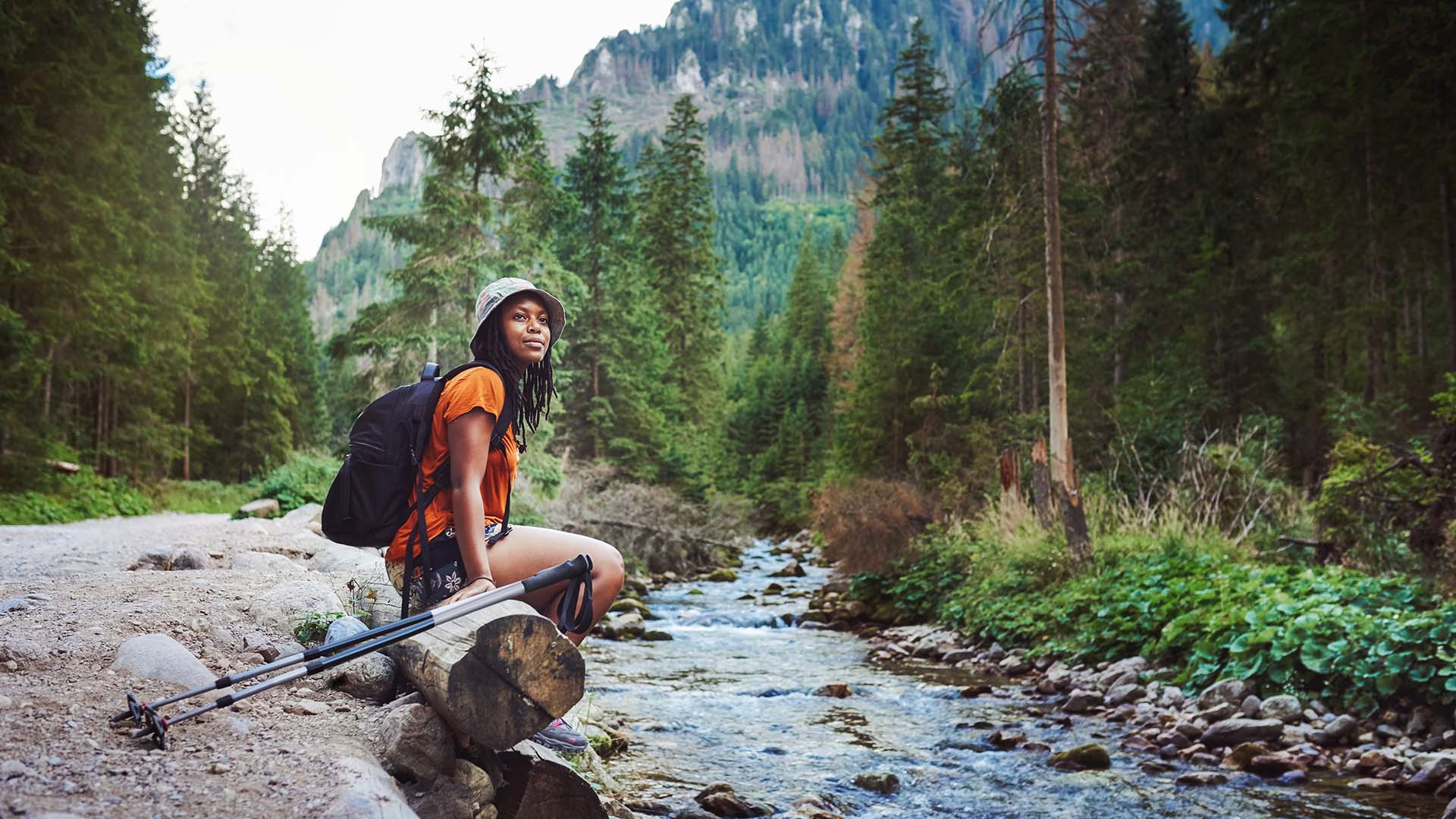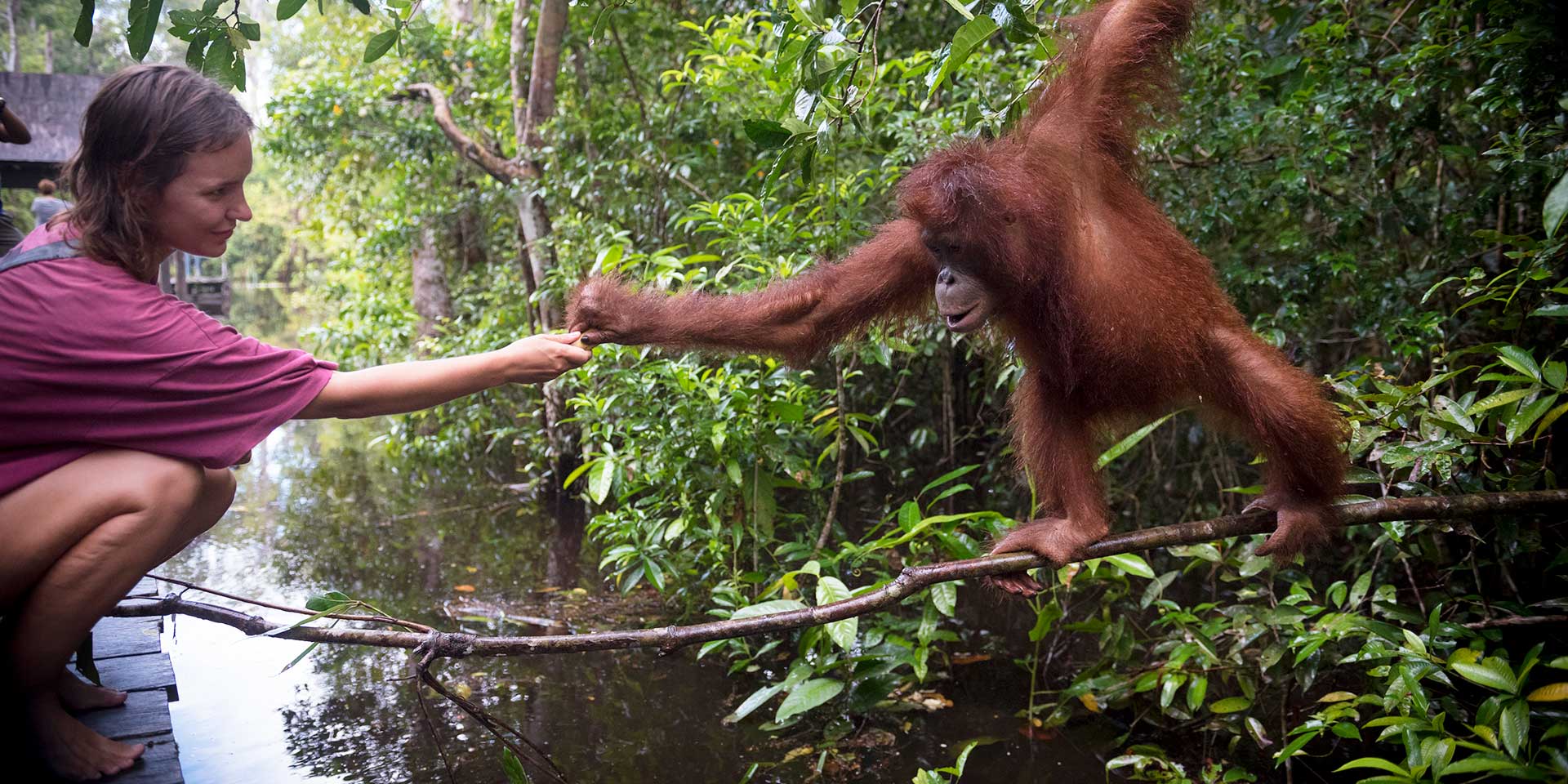
Be mindful of the environment and your impact as you travel. (Photo: Getty Images)
Tips + TrendsHow to Be a Responsible — and More Mindful — Traveler
By Johnny JetTourism can greatly benefit a local economy. But as more and more people explore the world to make lifetime memories, many destinations are experiencing the impacts of overtourism, including strains on local infrastructure. With overcrowding and cities enacting more restrictions on tourist sites, being a responsible traveler is more important than ever.
Thankfully, there are several easy ways to make sure that you leave a destination as you found it for locals and other travelers. Here are a few strategies to consider.
Respect the Land and Habitat
Many tourist destinations are popular because of their pristine beaches, unique geographic formations or memorable wildlife. If the natural attractions and habitats disappear, a destination loses its luster. While you may call a particular locale home for a week, many people actually live there full time. Adopt the mindset of treating the land, ocean and the other places you visit as you would your permanent home.
Ask yourself if you would behave differently if a place were your hometown. Leave no trace so the next visitor sees the area in the same spotless condition as you did. Simple things like staying on a designated trail and leaving natural objects like rocks, seashells and sand in place help prevent erosion and preserve natural habits.
This may be common sense, but avoid littering or defacing objects, such as carving your initials into a tree or writing on a wall. Some places don’t have many public garbage bins, so you may have to hold onto your trash until you find one.
When it comes to ocean safety, use reef-safe sunscreen with zinc oxide or titanium oxide as the active ingredient to prevent adding toxic chemicals to the ocean’s waters and to protect the marine ecosystem.
Respect Local Traditions
Many of us research landmarks and activities to plan our sightseeing schedule before we arrive at a destination. But studying local customs can provide a better immersion experience. Understanding the customs of a certain culture or destination can prevent you from making missteps.

For instance, you may not realize that parts of an island or landmark may be off-limits for religious or cultural reasons. Or you may not realize that there is a dress code that is required in order to visit a certain area. A little advance research can be extremely helpful and can enrich your travel experience.
Another idea? Learn common words and phrases in the local language (for example: Hello. How are you? Thank you. How much does it cost?) so that you can have a basic conversation with merchants, tour guides and strangers.
Shop Local
Try to support local merchants whenever possible. Buy locally produced souvenirs and visit farmers markets or family-owned restaurants that serve locally sourced ingredients. Shopping local may also help you learn about some of the best things to do from a local’s perspective. Plus, you might also get tips on the best restaurants and any hidden gems only locals know about.
Reduce Your Waste
An influx of tourists stresses the infrastructure of many tourist destinations. More visitors means a higher demand for natural resources like water and electricity.
Communities must also figure out how to dispose of the additional garbage generated by tourists. Recycling is a good start in preserving the environment, but it’s not your only option for responsible travel.
Strive to consume less disposable and recyclable items as a whole. You might consider carrying reusable water bottles instead of purchasing single-use water bottles. Many tourist spots don’t have a recycling program. All trash ends up in a landfill as a result.
In regard to meals, reduce your to-go packaging. Another step is choosing vegetarian and vegan meals that may require fewer emissions to produce than animal products do.
Travel in the Off-Season
Avoiding peak travel season is another way to be a courteous traveler. You can also have a more pleasant experience. For example, you may not have to wade through large crowds at major attractions or compete for a limited number of tour and dinner reservations. Off-season and shoulder season travel can also mean lower prices.
Depending on the attraction, more of the area can be explorable. In peak times, it’s not uncommon for landmarks and parks to close certain areas to curb the effects of overtourism.
Be Conscious of Wildlife Tourism

Wildlife tourism includes things like elephant rides and posing with a tiger. Wildlife tourism is rife with exploitation and animal abuse. Fortunately, not all attractions are abusive to animals. Some organizations can produce a fun yet ethical experience.
Before engaging in exotic animal adventures, see if the organization is transparent about how it treats its animals. Certain organizations, like animal sanctuaries, offer animal-friendly tourism. Researching beforehand which places are dedicated to protecting wildlife can help you make an informed decision about where to go.
Sustainable Hotel Habits
For years now, many hotels and resorts have adopted various sustainability measures to minimize their carbon footprint. However, you can take additional steps to consume fewer resources.
Try reusing your bath towels, turning off lights and using less air conditioning. The hotel may even award bonus loyalty points for declining room service on a multi-night stay.
Consider Mass Transit or Walk
Walking, riding a bike or taking mass transit helps reduce your carbon footprint. Sure, alternate travel options are not as convenient as a rental car or hiring a taxi. But you’ll have the chance to take a detour and explore local attractions you would miss by zooming by.
Explore Less-Traveled Destinations
You can also avoid tourist crowds by exploring less-visited destinations with similar features. While you may not see iconic landmarks from your favorite movies, you can enjoy other historic buildings and national parks.
Plus, you may be able to get to more exotic travel destinations with your airline miles. Also, because you’re avoiding the main tourist zones, you may get a better glimpse of the culture. Your unique trip can also help you get a unique travel experience you don’t see in guidebooks.
Minimize Social Media Posts
While you don’t need to implement a social media blackout when traveling, you should think twice about what you post. You may decide not to include a geotag of a little-known destination. It’s not uncommon for some locals to keep some of their favorite spots a secret. If they share them with you, honor their privacy by making a private memory.
Don’t forget to respect the local rules and boundaries when taking photos. Destroying a habitat or property isn’t worth getting the perfect selfie.
John E. DiScala, aka Johnny Jet, has traveled more than 100,000 miles a year since starting his free newsletter in 1995 and has visited close to 100 countries. He was named by Forbes as one of the Top 10 Travel Influencers and writes about everything travel on JohnnyJet.com. Johnny now travels the world with his wife and their two children.






